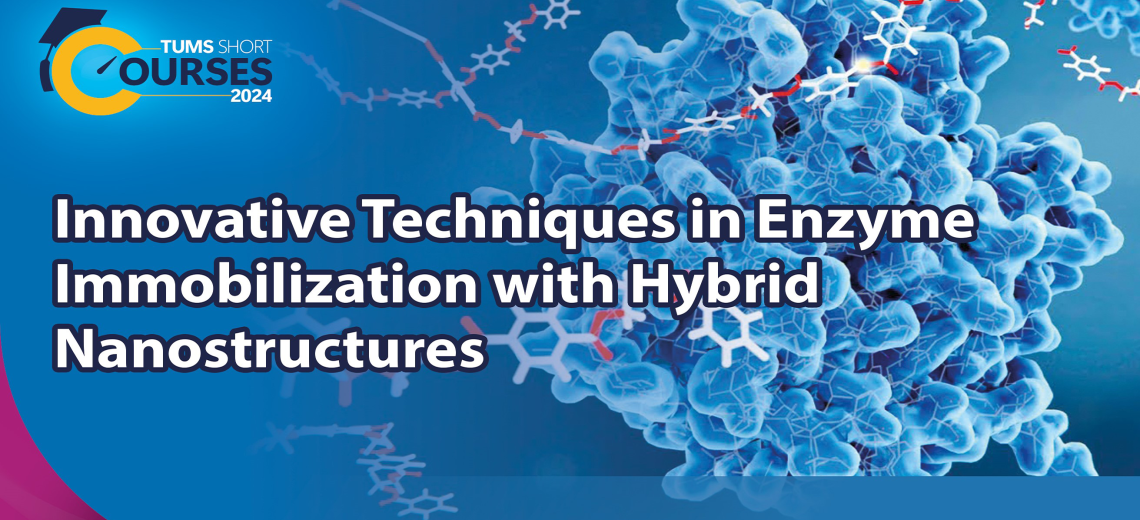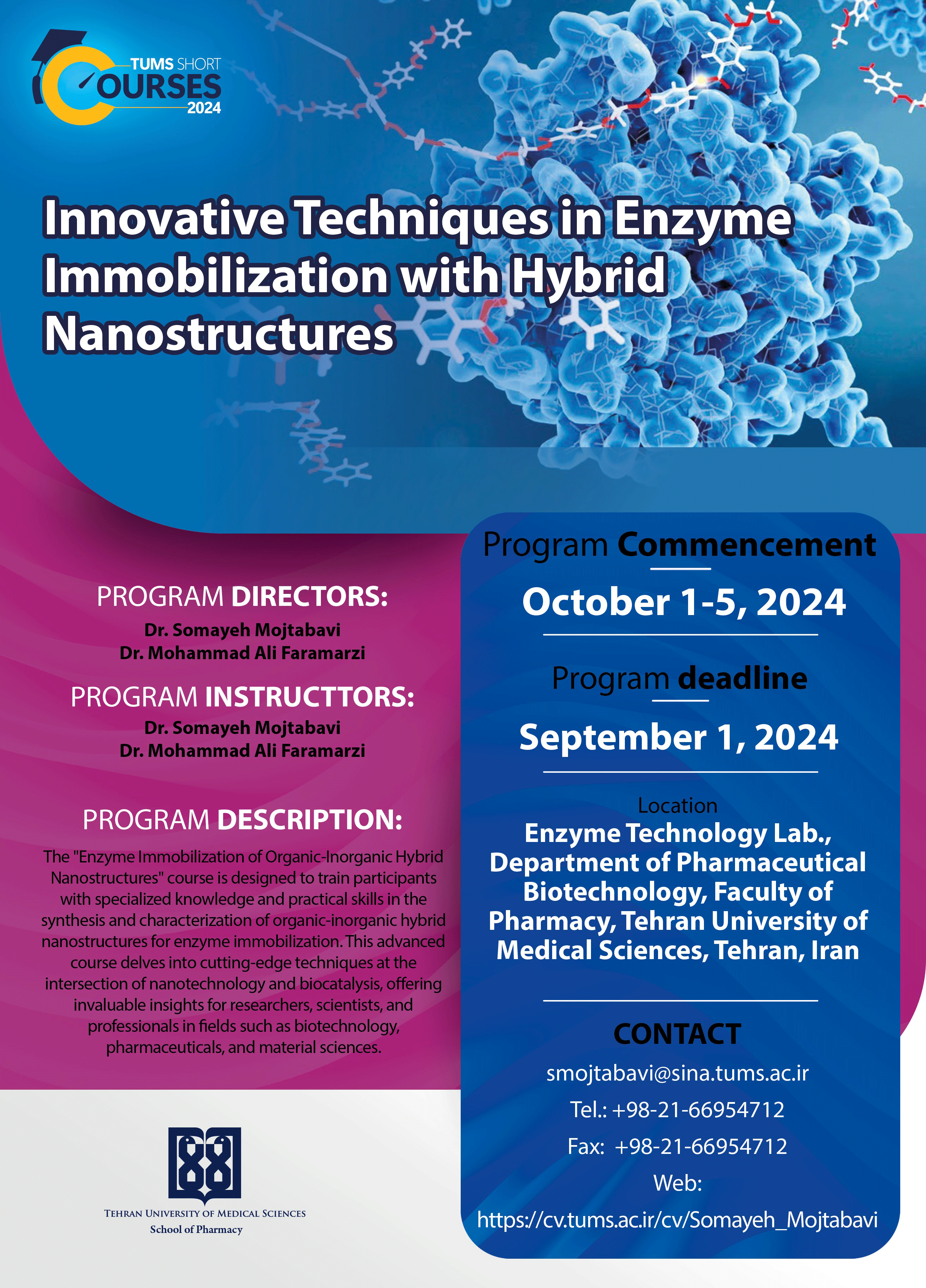Innovative Techniques in Enzyme Immobilization with Hybrid Nanostructures
Course Description:
The "Enzyme Immobilization of Organic-Inorganic Hybrid Nanostructures" course is designed to train participants with specialized knowledge and practical skills in the synthesis and characterization of organic-inorganic hybrid nanostructures for enzyme immobilization. This advanced course delves into cutting-edge techniques at the intersection of nanotechnology and biocatalysis, offering invaluable insights for researchers, scientists, and professionals in fields such as biotechnology, pharmaceuticals, and material sciences.
Key learning objectives:
To synthesize organic-inorganic hybrid nanostructures: Participants will learn advanced synthesis techniques to create hybrid nanostructures combining organic and inorganic components, with a focus on optimizing properties for enzyme immobilization.
To evaluate immobilization yield: Through hands-on laboratory sessions, learners will gain proficiency in assessing the yield of enzyme immobilization onto hybrid nanostructures, crucial for determining process efficiency and scalability.
To determine immobilization efficiency: Participants will explore methods to quantify the efficiency of enzyme immobilization, considering factors such as surface coverage, enzyme loading, and stability of the resulting hybrid nano-biocatalysts.
To assess kinetic parameters of immobilized enzyme: The course will cover techniques for characterizing the catalytic activity and kinetics of immobilized enzymes, including the determination of Michaelis-Menten constants and reaction rates, essential for understanding and optimizing enzymatic processes.
To measure reusability of immobilized enzyme: Participants will investigate the reusability and stability of immobilized enzymes over multiple reaction cycles, addressing factors such as leaching, deactivation, and regeneration strategies to maximize the lifespan and efficiency of the biocatalysts.
Who is eligible to apply?
All biology and pharmacy undergraduates and graduates
Advanced knowledge of Enzyme Biotechnology
Course Objectives:
- To synthesize organic-inorganic hybrid nanostructures
- To evaluate the immobilization yield
- To determine the immobilization efficiency
- To assess the kinetic parameters of the immobilized enzyme
- To measure the reusability of the immobilized enzyme
|
Course Information |
|
|
PROGRAM DIRECTOR(S) |
Dr. Somayeh Mojtabavi, Dr. Mohammad Ali Faramarzi |
|
PROGRAM INSTRUCTOR(S) |
Dr. Somayeh Mojtabavi, Dr. Mohammad Ali Faramarzi |
|
PROGRAM DURATION |
5 days |
|
PROGRAM START DATE |
October 1, 2024 |
|
PROGRAM FINISH DATE |
October 5, 2024 |
|
APPLICATION DEADLINE |
September 1, 2024 |
|
NUMBER OF POSITIONS OFFERED |
5 people |
|
TUITION FEE |
450 $ |
|
PROGRAM LOCATION(S) |
Enzyme Technology Lab., Department of Pharmaceutical Biotechnology, Faculty of Pharmacy, Tehran University of Medical Sciences, Tehran, Iran |
|
METHOD OF INSTRUCTION |
1. Theoretical lectures: Delivered by experienced faculty and industry experts, these lectures cover foundational and advanced concepts related to enzyme immobilization and hybrid nanostructures. Topics include synthesis methods, characterization techniques, and practical applications in various fields. 2. Laboratory sessions: Hands-on experiments: Participants engage in extensive laboratory work, synthesizing organic-inorganic hybrid nanostructures and performing enzyme immobilization. These practical sessions reinforce theoretical knowledge and develop essential laboratory skills. Data collection and analysis: Learners will collect and analyze experimental data, evaluate immobilization yield, efficiency, and kinetic parameters, and interpret results to solve complex problems. |



